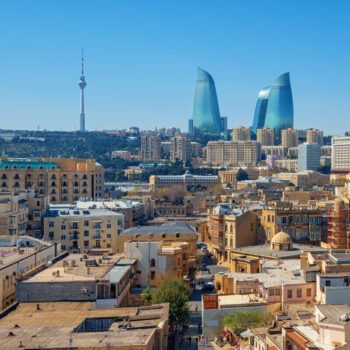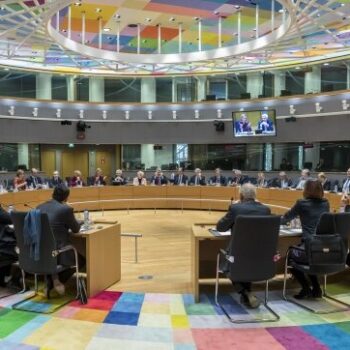The annual UN COP climate conference is an important point in the climate calendar and a key pillar of the Paris Agreement on Climate Change architecture. Rather than dwell on the dismal outcome of this year’s COP25 in Madrid and disheartening negotiation dynamics, I’m going to draw on a holiday tradition from where I hail and write my holiday wish list.
So, dear Santa, these are the structural shifts in the real economy that I wish for in the 12 days before Christmas.
On the 12th day of Christmas, countries commit to no new coal. No more. That’s it. The 311 gigawatts in the pipeline are zeroed out overnight, replaced with all green energy. Bankers, public and private, scramble to find at scale shovel-ready projects, incentivised by fully capitalized Development Finance Institutions. The costs of clean energy plummet further, undermining arguments for natural gas. The transition from brown to green is a reality.
On the 11th day, a new international finance vehicle underwrites the early retirement of fossil fuels plants. Europe, the US and China create their own mechanisms. The Belt and Road Initiative goes all green, deep green. A new International Monetary Fund (IMF) financing window opens for five-years on a first-come-first-serve basis to countersign structured transactions for countries that want to off load their fossil liabilities and leapfrog to low carbon, modern economies.
On the 10th day, the Green Climate Fund, Global Environment Facility and Global Adaptation Fund are properly capitalised. There is core funding for resilience. A new Risk Observatory integrates thousands of emerging risk models and all infrastructure spending is screened against this pooled data reflecting the latest science. New institutions and international frameworks are designed to deal with the reality that some people will have to move and large numbers of people will migrate. This is handled with courage, foresight and reverence for the deep loss it entails.
On the 9th day, a carbon price is introduced. A global digital tax and financial transaction tax are also agreed. These new revenue streams are equitably divided between countries to fund a massive green stimulus and new social contract. The social contract is radically redesigned, so it supports people through the inevitable disruptions from decarbonisation, digitalisation, and demographic change – with their dignity intact. It also makes explicit who gets what protection from the coming climate impacts.
On the 8th day, political leaders throw their weight – and the whole of the government machinery – behind the transition. The new social contract is underpinned by a real labor policy and industrial strategy. Creative cross-cutting strategies and new business models are set to deliver modern mobility services, a zero-emission built environment, sustainable agriculture and renewable decentralised energy systems. At the international level, the OECD becomes the Organization of Economic Carbon-free Development and the IEA inserts an extra ‘E’ to become the International Emission-free Energy Agency.
On the 7th day, a new global civic exchange program – Climate Corps –sends those willing to work in other countries to restore natural habitats, restoring our democracies in the process. Climate science and adaptive leadership modules become a core part of all curriculums. Cultural icons, high and low brow, promote climate action in their work. Everybody gets on board, fighting for climate action like the world depends on it.
On the 6th day the G20, after an expedited taskforce, agrees to redefine its purpose towards delivering fair and balanced sustainable development. GDP growth is replaced by a new progress metric – National Rebalancing Rate or NRR – which is a clever composite index of the quality of a country’s development and their national decarbonisation rate.
The Bank of International Settlements swings into action on the 5th day, aligning the Basel Accords with the Paris Accord. New national prudential standards incorporate natural cost accounting; collateral frameworks and capital ratios that reward green and penalise brown investments. All regulators institute stress testing against a 1.5 degree world and net zero emissions by 2050. Just like that, the global financial system is reoriented.
On the 4th day, corporate boards follow suit and implement a slew of reforms including changing their modus operandi from maximising shareholder value to serving all their stakeholders, first and foremost their employees. Quarterly earnings are abolished, and disclosure of climate-related financial risk is mandated. Executive pay is pegged to the lowest-paid and conditional on hitting stringent decarbonisation rates. Climate and Equality board members provide oversight and accountability.
Citizens and consumers wake-up on the 3rd day, realising their part in this unfolding drama. This global awakening happens because of growing climate impacts and the unstoppable youth protests. Conscious consumerism goes mainstream, with no trade agreements with countries intent on destroying the planet. Early movers reap their rewards, while climate laggards finally get the message.
Net zero becomes the norm on the 2nd day, when a majority of countries legislate to this effect, unleashing a wave of innovation. R&D budgets quadruple and collaboration across borders and disciplines move breakthrough technologies quickly. New products, services, and business models burst on to the market to make the transition less scary and lonely, even exciting!
After all this, on the first day of Christmas, negotiators at COP get new instructions from their capitals reading, “Let’s do this! Inject Ambition. Repeat: Make 2020 the year of Ambition. For Real”. So, they get back to negotiating text that advances solutions and the Paris rules are finalised. The climate ambition ratchet mechanism turns out to actually work. The emission gap closes, and the world is on track.
* * *
As I said, it’s a wish list. In all seriousness, it’s easy to get distracted at the annual COPs, even a little depressed. Let’s not lose sight of the more strategic developments and work going on in capitals and other venues that will fundamentally drive decarbonisation and climate politics.


